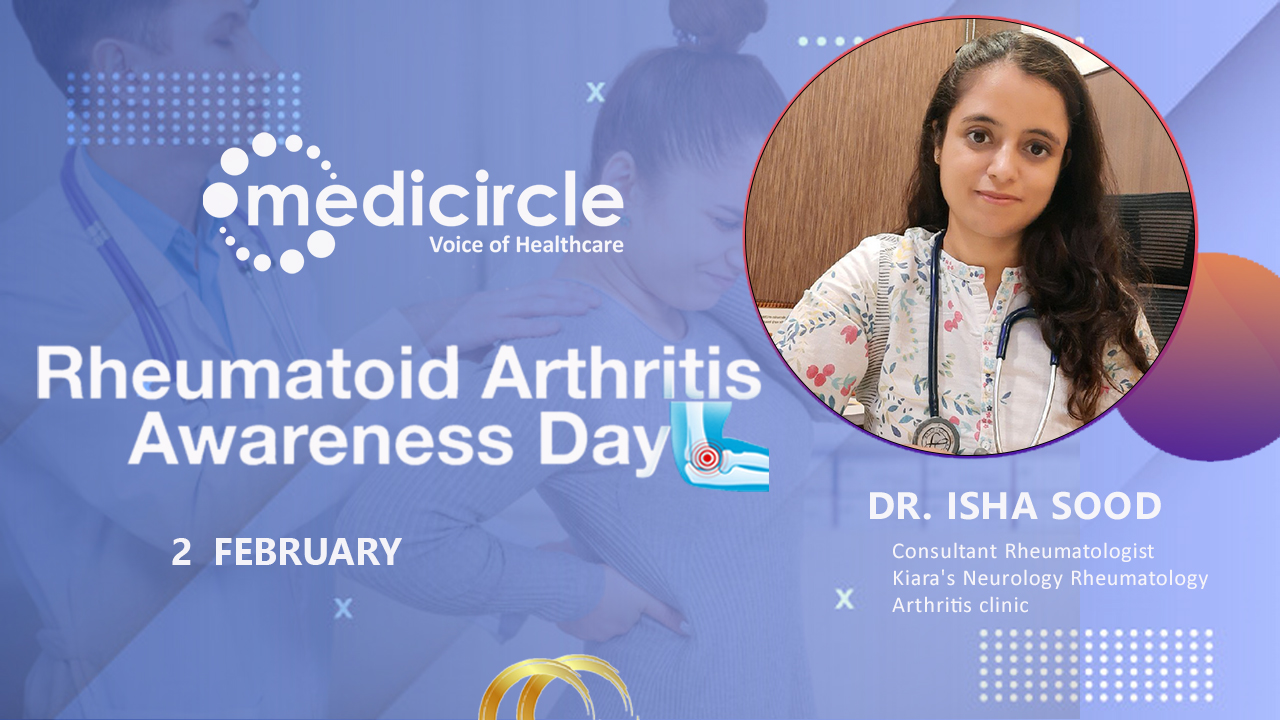Rheumatoid arthritis (RA) is estimated to affect approximately 0.24 to 1 percent of the Indian population and to be twice as common in women compared with men. It affects more than 180 million people in India; the prevalence is higher than many well-known diseases such as diabetes, AIDS, and cancer. Around 14% of the Indian population seeks a doctor's help every year for this joint disease.
Dr. Isha Sood, Consultant Rheumatologist, Kiara’s Clinic and Nanavati Superspeciality Hospital, Mumbai, is skilled in Rheumatology, Medicine, Research, Immunology, and Medical Research. Strong consulting professional with a Dnb focused in Rheumatology Residency Program from Indraprastha Apollo Hospitals, New Delhi.
Symptoms of Rheumatoid Arthritis
Dr. Isha talks about the symptoms of Rheumatoid Arthritis,” Rheumatoid arthritis is an autoimmune disease where initial symptoms can be:
- Early morning stiffness
- Difficulty in making a fist
- Swelling in finger joints or wrist
- Some patients can also experience just knee swelling or frozen shoulder
If any of the above symptoms start appears then it’s important to meet a Rheumatologist doctor for arthritis,” she says.
Role of Diet
Dr. Isha speaks on whether diet helps in rheumatoid arthritis, “In modern medicine which is evidence based medicine, diet does not have any major role in Rheumatoid Arthritis. Some people may get increased pains with certain food items, but nothing conclusive have been found till date,” she says.
Rheumatoid Arthritis is a chronic disease
Dr. Isha explains, “Rheumatoid Arthritis is a chronic disease, like diabetes and hypertension one has to take its treatment for long. Saying that it cannot be treated is wrong. It can be managed with various arthritis medicines which reduces the deformities associated with it. But one has to take treatment for long. Many a times some patients are even able to stop the treatment after some time,” she says.
Early detection helps
Dr. Isha shares her opinion, “Early detection and early treatment can definitely help patients in long term. Early treatment also increases the chances of going into remission, means the disease can halt and patient may become drug free. Early diagnosis and early treatment can also reduce the disabilities associated with disease,” she says.
(Edited by Rabia Mistry Mulla)

 “RA can be managed with various arthritis medicines which reduces the deformities associated with it. But one has to take treatment for long,†says Dr. Isha Sood, Consultant Rheumatologist, Kiara’s Clinic and Nanavati Super specialty Hospital.
“RA can be managed with various arthritis medicines which reduces the deformities associated with it. But one has to take treatment for long,†says Dr. Isha Sood, Consultant Rheumatologist, Kiara’s Clinic and Nanavati Super specialty Hospital.









.jpeg)



.jpg)





.jpeg)

.jpg)





.png)

